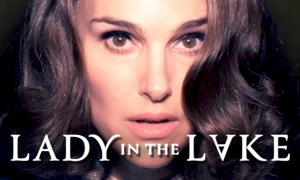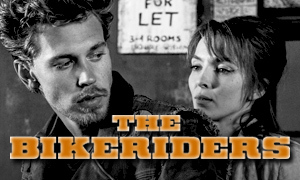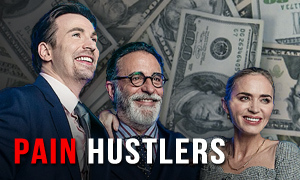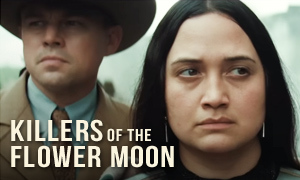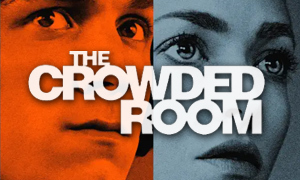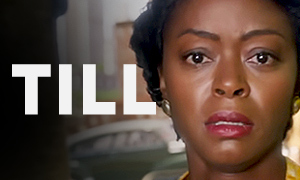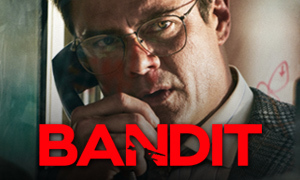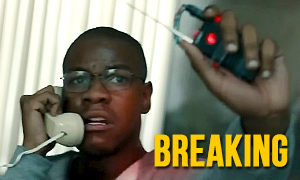American Made vs. the True Story of Barry Seal
| REEL FACE: | REAL FACE: |
Tom Cruise
Born: July 3, 1962 Birthplace: Syracuse, New York, USA | Barry Seal
Born: July 16, 1939 Birthplace: Baton Rouge, Louisiana, USA Death: February 19, 1986, Baton Rouge, Louisiana, USA (assassinated by gunshot) |
Sarah Wright
Born: September 28, 1983 Birthplace: Louisville, Kentucky, USA | Deborah Seal
Born: abt 1951 Birthplace: USA Renamed Lucy in the movie |
Alejandro Edda
Born: May 17, 1984 Birthplace: Puebla, Mexico | Jorge Ochoa
Born: September 30, 1950 Birthplace: Medellín, Colombia |
Mauricio Mejía
Born: September 13, 1974 Birthplace: Envigado, Colombia | Pablo Escobar
Born: December 1, 1949 Birthplace: Rionegro, Colombia Death: December 2, 1993, Medellín, Colombia (shot by Colombian National Police) |
Had Barry Seal really been a commercial airline pilot for TWA?
Yes. Like in the American Made movie, the real Barry Seal earned a living as a commercial airline pilot for several years. He was hired by Trans World Airlines (TWA) in 1964 and at age 26 became one of the youngest Captains operating a Boeing 707. He had already been flying planes for nearly half his life, earning his student pilot's license at age 15 and pilot's license at 16. Embracing his entrepreneurial spirit as a teenager, he started a small business flying ads from his airplane. In 1961, he joined the Louisiana Army National Guard and served with the 20th Special Forces Group for six years. -Daily Mail Online
Was Barry Seal recruited by the CIA while he worked for TWA?
No, in real life, it happened earlier. In the American Made movie, Barry Seal's boredom with piloting commercial flights leads him to perform stunts that cause the oxygen masks to fall and frighten passengers. This draws the attention of the CIA. Operative Monty Schafer (Domhnall Gleeson) approaches Barry Seal (Tom Cruise) and tells him, "We need you to deliver stuff for us." The real Barry Seal claimed that he started running covert operations for various government agencies as early as the late 1950s, while he was a member of the Civil Air Patrol in New Orleans, well before he became a TWA pilot. Seal said that he started by doing things like flying guns for the CIA to revolution fighters in Cuba in the late 1950s and flying operations for U.S. Army Special Forces in Laos just prior to the Vietnam War. -Daily Mail Online
Did Barry Seal resign as a TWA pilot to carry out covert operations for the CIA?
No. Barry Seal was fired from TWA in 1974 for falsely citing medical leave when he was actually off trafficking weapons. He had been arrested in 1972 by the U.S. Customs Service for trying to fly 1,350 pounds of plastic explosives to anti-Castro Cubans via Mexico. -Smuggler's End: The Life and Death of Barry Seal
Is Domhnall Gleeson's character, Monty Schafer, based on a real CIA agent?
No. Fact-checking American Made revealed that Monty Schafer is a fictional character created to represent Barry Seal's contacts at the CIA. There is no real-life Monty.
Did Barry Seal meet Lee Harvey Oswald?
Yes. An interesting fact we learned while researching the true story was that while training for the Civil Air Patrol in Baton Rouge, Barry Seal met President John F. Kennedy's assassin, Lee Harvey Oswald. -Refinery29
Is Barry Seal's wife in the movie based on a real person?
Yes. However, her real name is Debbie, not Lucy. She is a brunette, not a blond like Sarah Wright's character in the movie. Barry met Debbie while he was on his way to a hearing after he was caught in 1972 trying to smuggle military explosives out of the country. The explosives were supposedly going to anti-Castro Cuban fighters. Debbie, who was 21 at the time, met Barry, 33, while working as a cashier at a restaurant. "He stopped in there and, just like that, he asked me out," Debbie told Daily Mail Online. "He would tell me all these wild stories about the missions he had flown. I was young and it was impressive." They married in 1974. Debbie became Barry's third wife. He had previously been married to Barbara Bottoms (m. 1963-1971) and Lynn Ross (m. 1971-1972).
Was Barry Seal really working for both the CIA and Pablo Escobar in the early 1980s?
The extent of Barry Seal's involvement with the CIA in the 1980s has provided fuel for speculation and conspiracy theories. As author Del Hahn states in his book about Barry Seal's life, Smuggler's End: The Life and Death of Barry Seal, there is no evidence to support claims that Barry Seal worked for the CIA. Hahn was part of the task force that pursued Seal in the 1980s. In his book, he uses case documents and first-person accounts to dispel this idea and other half-truths about Seal.
However, some still allege the opposite, that the government turned a blind eye to Seal's drug running in order to use him to deliver weapons to the Nicaraguan rebels. Basically, Seal would fly over the guns and smuggle back drugs on his return trip. It's certainly possible and it's what the movie proposes. Yet, it's also certainly possible that Seal had no involvement with the CIA in the early 1980s at all, given there is nothing to support the claim but rumors. In the least, his exploits with the CIA and agent Monty Schafer in the movie are largely fictional and based on speculation. In his research for the book, the only confirmed connection Hahn could make between the CIA and Barry Seal was in 1984, after Seal had started working as an informant for the DEA.
What is certain is that Barry Seal did work for Pablo Escobar and the Ochoas as a drug smuggler for the Medellín Cartel and single-handedly had one of the largest impacts on the cocaine epidemic in the U.S. in the early 1980s. Seal made an estimated $60 million off smuggling drugs into the country and became one of the richest people in America. Executing secret missions for the government in the movie might add a sort of patriotism and redeeming quality to his character, but in real life Barry Seal was a drug smuggler first and foremost. That aspect of who he was has never been disputed.
What was the Iran-Contra affair?
As stated in the previous question, there is no strong evidence to confirm that Barry Seal was working with the CIA prior to becoming an informant after his arrest in 1983. Yet, some believe that Seal was working for the CIA in the 1980s to fly guns and money to Nicaraguan rebels, a detail that the movie embraces. During the Iran-Contra affair of the 1980s, the U.S. plotted to secretly help the rebels (Contras) overthrow Nicaragua's Communist Sandinista government. Money from the sale of weapons to Iran was used to help fund the rebels in Nicaragua. However, the U.S. needed a way to covertly get the funds and weapons to the rebels. Using pilots like Barry Seal was a means to an end. -Daily Mail Online
When did Barry Seal begin smuggling drugs?
The movie proposes that Barry Seal's first foray into smuggling drugs happened in 1980 after he was kidnapped while refueling his plane in Colombia. In the film, his abductors take him to a secret airstrip in the Colombian jungle where three businessmen, including Pablo Escobar, make him an offer he can't pass up. Upset that he has lost his pension and healthcare at TWA, he embraces the idea of making $2,000 per kilo of cocaine smuggled into the United States. This doesn't add up with the American Made true story. According to The Independent, Barry's widow, Deborah Seal, says that he began smuggling drugs in 1975, first focusing mainly on marijuana. Seal's Drug Enforcement Administration file also supports this, noting that he was smuggling marijuana as early as 1976, then adding cocaine to his resume in 1978.
How did Barry Seal become a drug smuggler for the Medellín Cartel?
In the movie, Barry Seal (Tom Cruise) starts working for the Medellín Cartel after they abduct him while he is refueling his plane and then make him an offer he can't refuse. In real life, his first encounter with the Medellín Cartel happened less dramatically. After being caught in Honduras with 40 kilograms of cocaine in 1979, Barry spent nine months in a Honduran jail. While there, he had a chance meeting with Jorge Ochoa's New Orleans business manager. The Ochoa Family, along with Pablo Escobar and others, were the founders of the Medellín Cartel. Still unknown at the time, the cartel would go on to make hundreds of millions from the explosion of cocaine use in the U.S. Barry Seal, who became known as "El Gordo" (The Fat Man), ended up being an integral part of that success. -Daily Mail Online
Did Barry Seal deal directly with Pablo Escobar and the other leaders of Colombia's Medellín Cartel?
No. According to Del Hahn's book Smuggler's End, Barry Seal was not chummy with the cartel bosses. He didn't meet Pablo Escobar and the Ochoa brothers in person until 1984, after his arrest when he was working as an informant for the DEA on an undercover operation.
Did Barry Seal have three children?
No. According to TIME, in real life, he had five children and was married three times. The real Barry Seal and his wife Debbie had three children (Aaron, Dean and Christina). Barry also had a daughter and a son not shown in the movie, Lisa and Alder, with his first wife Barbara Bottoms.
Did Barry Seal really crash land a plane full of cocaine in a suburban neighborhood?
No. In the American Made movie, Barry Seal (Tom Cruise) crash lands a plane in a suburban neighborhood in an effort to escape the DEA who ordered him to land. Barry emerges from the plane covered in cocaine. He hands wads of cash to a kid on a bike, telling the boy, "You never saw me." The memorable scene never happened in real life.
Did Barry really move his operation from Louisiana to Arkansas?
Yes. Barry Seal's smuggling operation began in Louisiana, and like in the American Made movie, he sometimes pushed packed duffel bags full of drugs out of his plane and into the Atchafalaya basin, to be collected by associates on the ground. A Baton Rouge, Louisiana native, Barry Seal was eventually forced to move his drug smuggling operation after he drew the attention of Louisiana authorities. He relocated to a small regional airport in Mena, Arkansas, which had a population of only 5,000. He carried out his smuggling operation under the nose of then-Arkansas governor Bill Clinton. -TIME
How much money did Barry make smuggling drugs into the U.S.?
As a drug smuggler for Colombia's Medellín Cartel, Barry Seal earned as much as $500,000 per flight smuggling cocaine into the United States. By 1983, his earnings totaled $60 million, making him one of the wealthiest people in America. In total, he had illegally imported $3 to $5 billion worth of drugs and an estimated 56 tons of cocaine into the U.S., making over 100 flights. -Daily Mail Online
Why was the movie's title changed from Mena to American Made?
"Mena" refers to the small town in Arkansas where Barry Seal moved his operation, smuggling in drugs to a clandestine airfield under the nose of then-Governor Bill Clinton. Per The Hollywood Reporter, the movie's title was changed to put less emphasis on the Arkansas connection, including the possibility that Bill Clinton was aware of what was going on.
Did Barry Seal's wife know that he was a drug smuggler?
Debbie Seal insists that she was unaware of what her husband was up to. She says that she thought he was an airplane broker and also that he rented out old anti-aircraft lighting for various promotional events. Her character in the American Made movie is much more aware and suspicious of her husband's activities, stating that she flat out doesn't trust him, which is the opposite of Seal's real-life wife. "I trusted him so I didn't ask questions," says Debbie. "He would tell me, 'I'm going to such and such places,' and I wouldn't see him for days. I never saw drugs, that's for sure." -Daily Mail Online
Did the zero-gravity love scene really happen?
No. The scene was actually inspired by something that happened while director Doug Liman and Tom Cruise were training for the movie. "Tom did all his own flying in the movie," Liman told Vulture. "He put the airplane into a parabolic arc and pinned me against the ceiling, and right in that moment, I had this inspiration. ... Wouldn't it be fun if they were fooling around in a plane and the plane went into the same kind of parabolic arc and they got pinned against the ceiling?"
Did the cartel really kill Barry Seal's brother-in-law with a car bomb?
No. In the movie, Lucy's brother JB (Caleb Landry Jones) steals money from Barry (Tom Cruise). He carries it around and begins spending it, which attracts the attention of the local authorities. The cartel tells Barry that they'll deal with JB, a suggestion that Barry opposes. Soon after, JB is killed by a car bomb. JB is fictional. The real Barry Seal never had a brother-in-law who was killed by a car bomb.
Is American Made a biopic?
No. "You know, we're not making a biopic," said director Doug Liman. "Tom Cruise doesn't look like Barry Seal. His character is inspired by the stories we learned about Barry." The movie's loose interpretation of the truth is echoed in the trailer when a voice-over by Tom Cruise as Barry Seal tells us that only "some of this sh*t really happened." Liman has referred to the film as "a fun lie based on a true story" (TIME).
Was Barry Seal as likable as Tom Cruise's American Made character?
Yes, at least according to his wife and others who knew him. "The DEA agents who worked with Barry loved him," said director Doug Liman. "We're talking about one of the largest drug smugglers in America, and these agents loved him." While the filmmakers were shooting the movie in South America, a local pilot who was working with them said that he had met Barry. When asked how, he replied, "Oh, Barry stole an airplane from me. He took it out for a test flight and never came back." It turns out Barry flew the plane all the way back to the United States. The man said that despite the incident, he was still very fond of Barry. -Vulture.com
Barry Seal was a ballsy and confident risk taker, who rarely acknowledged the possibility of failure, and that's just how Tom Cruise portrays him in the American Made movie. According to author Del Hahn, who wrote the book Smuggler's End, next to Barry's yearbook photo was the description, "Full of fun, full of folly" (TIME). Hahn told Vice that Barry was likable but "not as smart and clever as he thought he was."
Does Tom Cruise look like Barry Seal?
No. Fact-checking American Made immediately revealed that Tom Cruise looks nothing like the real Barry Seal, who weighed around 280lbs and was nicknamed "El Gordo" (The Fat Man) by his bosses. -Daily Mail Online
How was Barry Seal caught?
In researching the American Made true story, we learned that Barry Seal was arrested by customs officers in Fort Lauderdale, Florida in 1983 as he tried to smuggle 200,000 units of Quaalude, a recreational drug, into the country. The DEA had been onto him for a long time. If he had in fact been working for the CIA at the time, his connections didn't get him off the hook.
Did Barry Seal offer to become a federal informant to avoid prison time?
Yes. In an effort to reduce or altogether avoid his 10-year prison sentence, Seal first tried to make a deal with a U.S. attorney, volunteering to give up information on the Ochoa family, but the deal was rejected. He then was able to get a meeting with Vice President George H.W. Bush's anti-drug task force in hopes of convincing them of his value as an informant. They referred him to the Drug Enforcement Administration (DEA). The DEA eventually took him up on his offer because of his knowledge and connections to the cartel. Seal became a federal informant in March 1984. His cooperation led to many convictions, as well as indictments against Pablo Escobar and Jorge Ochoa, two of the founding members of the Medellín Cartel. Ochoa was arrested in Spain on a U.S. warrant, but due to pressure from the cartel was never extradited to the U.S. -Court Documents (STATE of Louisiana v. Miguel VELEZ, Bernardo Vasquez, and Luis Carlos Quintero-Cruz)
As an informant, did Barry Seal really bring back photos and drugs as part of his undercover work?
Yes. Like in the American Made movie, Barry Seal was allowed to fly out of the country and return with illegal drugs that the feds made sure never reached their targets. Concurrently, they had to make sure not to raise the suspicions of the ruthless Colombian drug lords. Undercover cameras installed on Seal's plane captured photos on the tarmac of a Nicaraguan airport. Images like the one earlier on this page show Medellín Cartel boss Pablo Escobar with Sandinista government officials and soldiers, who were loading cocaine onto Seal's plane, nicknamed the Fat Lady. Other photos like the one below show Federico Vaughan (center, striped shirt), a man that Seal claimed was a top aide of Tomas Borge, the Sandinista Minister of the Interior.
The White House saw the pictures as proof of the communist Sandinista government's corruption and believed that the photos would help to convince the public of the need to support and arm the rebels (Contras) in Nicaragua. Later, after Seal's cover was suspiciously blown, President Reagan used the photo shown below in a 1986 television address to the nation. -The Independent
Did Col. Oliver North inadvertently get Barry Seal killed?
Not likely. No other name is perhaps more associated with the Iran-Contra affair than Oliver North, but his involvement in exposing Barry Seal's mission and blowing his cover is unknown and entirely speculation. A July 17, 1984 front-page Washington Times article by Edmund Jacoby described a link between Nicaragua's Sandinista government and the Medellín drug cartel. Jacoby mentioned Seal's mission as evidence, which effectively outed Seal as a government agent. When asked who his source was, Jacoby implied that it was "an aide in the White House" and that Oliver North had the most motivation to release the information. Despite the movie attempting to pin it on North, Jacoby later said that North was not his source and that it was a deceased Special Forces and CIA guy named Ted Lunger, who at the time worked as a staff member for Representative Dan Daniel.
"I can state absolutely that Oliver North had nothing to do with my story as far as I knew, or as far as I know today," said Jacoby. Regardless, Jacoby's article led to the abandonment of the final piece of Barry Seal's undercover operation. Pablo Escobar and the Ochoas were going to be arrested at a celebration of Seal's successful cocaine transport. The arrests never happened since Seal's cover was blown. -Smuggler's End: The Life and Death of Barry Seal
Did the cartel put a contract out on Barry Seal?
Yes. "One day Barry came in and said there was a contract on him - half a million dead, a million alive," says widow Debbie Seal. "He thought we had more time. I guess he also thought Colombians would stick out like a sore thumb in Louisiana and they wouldn't come here." It is believed that the Colombians put a hit out on Barry after they learned he was going to help the feds with the extradition of Jorge Ochoa from Spain, one of the heads of the Medellín Cartel. Barry and his wife talked about going into witness protection, but like in the movie, he decided against it. -Daily Mail Online
Why wasn't Barry Seal forced into witness protection?
Author Del Hahn, a former FBI agent who wrote the book about Seal titled Smuggler's End: The Life and Death of Barry Seal, told Vice, "Seal thought he was smarter and cleverer than the Ochoas," who are one of the founding families of the Medellín Cartel. He wasn't. Barry Seal's widow, Debbie Seal, and others have wondered why the government didn't do more to protect Seal, whether he wanted the protection or not. Conspiracy theorists have gone as far as suggesting that the government ordered the hit on Seal, not the cartel, a suggestion that has never been supported by any proof.
Was Barry Seal assassinated in a parking lot?
Yes. The assassination happened on February 19, 1986 in the parking lot in front of the Salvation Army building on Airline Highway (U.S. 61) in Baton Rouge, Louisiana. As part of his reduced sentence, the judge had ordered Barry to spend his nights, from 6 p.m. to 6 a.m., at a Salvation Army halfway house for six months. Barry arrived that evening at approximately 6 p.m. and backed his white Cadillac into a parking space. He was unaware that a Colombian assassin was hiding behind one of the donation drop boxes. As Barry opened the driver's side door to get out of the car, the gunman rushed from behind the drop box and fired a .45 caliber Mac-10 machine gun, hitting Barry in the head and body several times. The gunman hurried into a waiting Buick, which sped away. The gunman was later identified as Luis Carlos Quintero-Cruz. Miguel Velez was the man driving the getaway car. Three Colombians supposedly sent by the Ochoas, including Cruz and Velez, were later arrested at the airport. They were all sentenced to life in prison. -Court Documents
The 2016 Bryan Cranston movie The Infiltrator also depicts Barry Seal's assassination, but it is historically inaccurate. That film finds Seal (portrayed by Michael Paré) being assassinated in a motorcycle drive-by shooting while he is driving and Robert Mazur (Cranston) is his passenger.
Does director Doug Liman have ties to the true story?
Yes. While exploring the real-life story behind the movie, we discovered that Doug Liman's father, lawyer Arthur L. Liman, ran the Senate investigation into Iran-Contra. Arthur, the chief council, investigated the CIA and questioned Col. Oliver North, who is depicted in American Made. Doug Liman had previously modeled Chris Cooper's villain in The Bourne Identity after North, which reveals Liman's feelings about the controversial figure North. -Vulture.com
Did Tom Cruise do all of his own flying in the movie?
Yes. "Tom did all his own flying in the movie," says director Doug Liman, who is a pilot himself (Vulture.com). Tom Cruise got his pilot's license in 1994. "I fly airplanes. I'm a multi-engine, instrument-rated commercial pilot," Cruise said in a Wired interview. "Doug and I are both aviators, so we both love to fly."
How does Barry Seal's family feel about the movie?
Not all of Barry Seal's heirs were happy with the making of the movie. Lisa Seal Frigon, Barry's daughter from his first marriage, sued Universal, claiming that the studio should have purchased Barry's life rights from her, not his third wife Deborah who they paid $350,000. In her suit, Lisa, who is not depicted in the movie, also claimed that there were factual inaccuracies in the script, including the fact that Barry had five children, not three, and that the movie falsely suggests he was an alcoholic and a reckless pilot.
Were two pilots killed during the making of American Made?
Yes. Just prior to the movie's release, news broke that the family of deceased stunt pilot Alan Purwin was suing American Made's producers for wrongful death. Purwin was a passenger in a plane that went down, killing both Purwin and Venezuelan pilot Carlos Berl. The accident didn't happen during filming. The lawsuit claims that the pilots were overworked and that the crash happened after a 12-hour workday. In court documents, the family alleged that "lapses in planning, coordinating, scheduling, and flight safety" contributed to the fatal crash in the mountains of Colombia. They also claimed that the pilot who died lacked the necessary experience for the flight. -Good Morning America
Barry Seal Interviews & Related Videos
Watch an interview with the real Barry Seal where he discusses his undercover mission, and listen to President Ronald Reagan talk about the photos Seal obtained on the mission. Also, view a news story about Barry Seal's death.
